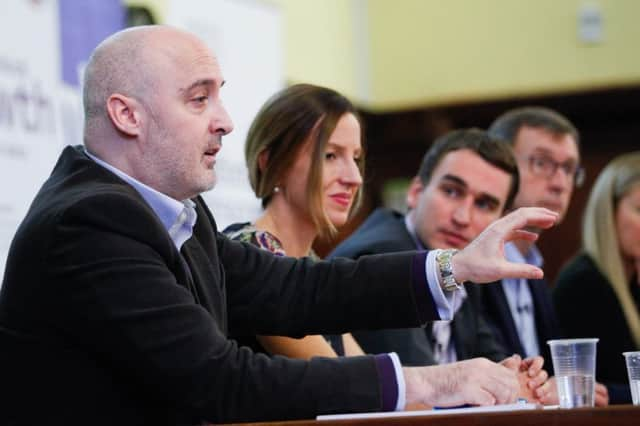Call for data standards to govern Edinburgh's data growth


That was one point put to the panel during a question and answer session at The Scotsman’s Data Driven Innovation debate held at the University of Edinburgh on Monday.
Standards simplify data for machines, and indeed humans, as they encourage developers to adhere to the same rules when developing new applications.
Advertisement
Hide AdAdvertisement
Hide AdDelegates quizzed the panel on how the Data Driven Initiative, which is part of the Edinburgh and South East Scotland City Regional Deal, plans to deal with the growth in the volume of data that will be generated by the project.
There were calls for new standards to be introduced to cope with emerging forms of data coming from the fusion of new technologies and actors working in the region’s data space.
One delegate said that if a single standard could be created for the Circular Economy then it would encourage tech to innovate in the renewables sector.
Professor Gareth Peters of Heriot-Watt University said that the issue presented a challenge.
He said: “There are a number of standards already in place through professional bodies such as those governing the Internet of Things.
“However what kind of curation data warehousing can we build to facilitate a broad collection of industries to encourage cross fertilisation between data and organisations is a question which still needs to be answered.”
Digital technology and delivery sector director at Scottish Enterprise, David Smith, said:
“Scotland’s oil and gas sector has successfully created a national data register.
Advertisement
Hide AdAdvertisement
Hide Ad“This database lists field and exploratory information and allows greater collaboration in the oil and gas sector and beyond.”
The panel also fielded questions on the skills gap and how Scotland was in danger of building a data economy with not enough skilled people to work in it.
Delegates questioned how Scotland’s education system could be changed from primary school level upwards to be geared towards serving an increasingly data-driven economy.
Elizabeth Hollinger , head of analytics and BI at Agrekko, said industry had its part to play in supporting the education system.
She said: “I think the link between skills and great jobs in the creative industries with the likes of Facebook and Skyscanner is not clear.
“Companies have a job to do in terms of supporting teachers and being ambassadors for the digital industries.
“We all have a responsibility to encourage school children to think about the digital skills they will need to pursue a career that they will enjoy.
“While maths and computing are key skills we also need to remember that arts and creative subjects are also important if we are to create a well-rounded workforce”
Advertisement
Hide AdAdvertisement
Hide AdThe panel was also questioned on how the media could better engage with data with one delegate arguing the statistics were often misused.
Dr Kathi Kaesehage, of the University of Edinburgh Business School, said:
“We have to educate ourselves especially around issues like climate change.
“The media and those trying to communicate a message need to make things visual and easy to understand.
“There is also no point in using data just to proclaim a problem. There has to be opportunities for people to help solve the problem or give them the options to make better choices.”
